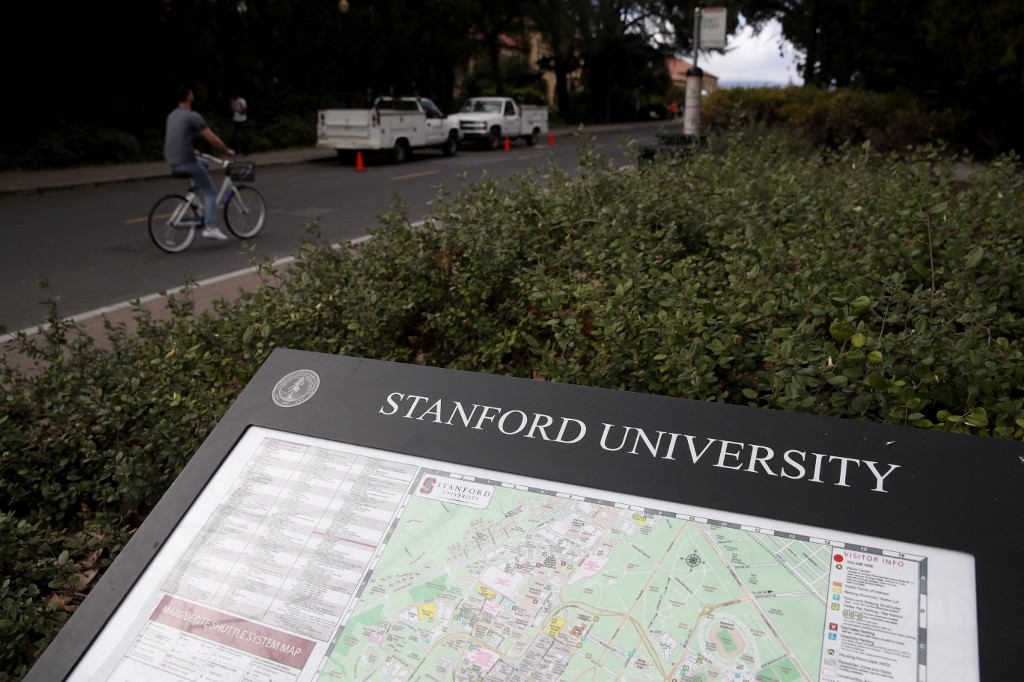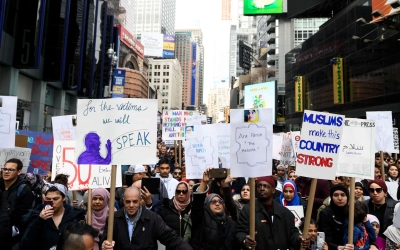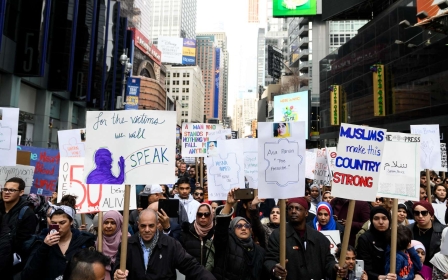Stanford University course teaches students about Islamophobia in the US

A new course being offered this fall for the first time at California's Stanford University aims to teach students how Islamophobia manifests in the United States.
The course, named Interrogating Islamophobia, is being taught by Abiya Ahmed, the associate dean and director of Stanford’s Markaz Resource Center, the student-run newspaper, The Stanford Daily, first reported.
New MEE newsletter: Jerusalem Dispatch
Sign up to get the latest insights and analysis on Israel-Palestine, alongside Turkey Unpacked and other MEE newsletters
Ahmed’s work examines the intersection of religion and education, with a focus on Muslims and Islam. She told Middle East Eye that the course aims to interrogate complexities around Islamophobia in the United States, both as a concept and in how it manifests.
“This is important to do, in my view, because the more we understand a phenomenon, the better we can grasp the challenges and potential of countering it,” she said.
“In essence, what we’re trying to do with this course is enhance the discourse surrounding Islamophobia in the US, such that students can walk away having examined the intersections and nuances associated with it.”
Currently, the course has 10 students enrolled, along with an undergraduate serving as a teaching fellow, who is co-teaching it with her.
Anti-Muslim rhetoric has long existed in the US. Muslims are five times more likely to experience police harassment because of their religion, compared to those of other faiths, a study by Rice University shows.
More specifically, Muslim adults who identify as Black, Middle Eastern, Arab, or North African are more likely than Muslims who identify as white to report that they have been harassed by the police because of their religion, according to a study published in the Society for the Study of Social Problems.
Looking at schools, a survey by the Council on American-Islamic Relations (Cair) showed that Muslim students in California exhibited high levels of Islamophobic bullying, harassment and discrimination.
At Stanford, there have been Islamophobic incidents as well. In 2017, anti-Muslim blogger Robert Spencer was invited to speak on campus. He mocked students who criticised him before his talk. During his speech, more than 100 students walked out.
Next semester, Ahmed is offering a different but related course called Contemporary Islam and Muslims in the US, “which takes a deeper dive into the lived experiences of Muslims in the US, addressing more closely the interplay between the theory and practice of Islam in the US and how/why Muslims negotiate religion as a minority in this country,” she explained.
She plans on offering the Islamophobia course again next fall and hopes it will become a regular feature at Stanford.
Middle East Eye delivers independent and unrivalled coverage and analysis of the Middle East, North Africa and beyond. To learn more about republishing this content and the associated fees, please fill out this form. More about MEE can be found here.





